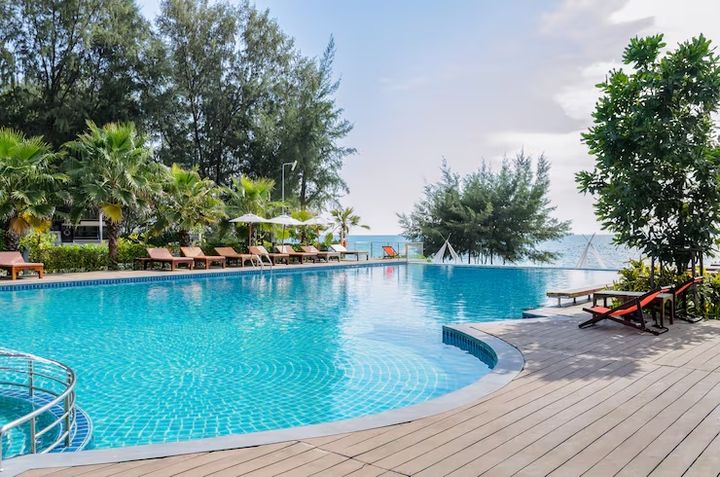
Explore Swimming Pools in the United Kingdom: A Complete Guide
Swimming pools are more than just places for leisure—they are vital spaces for fitness, recreation, therapy, and community engagement. Across the United Kingdom, pools range from historic lidos to modern indoor complexes and private luxury designs.
With increasing interest in healthy lifestyles, family recreation, and eco-friendly infrastructure, swimming pools continue to be an integral part of public life and private development. This guide explores their types, importance, design trends, and resources available in the UK.
Importance: Why Swimming Pools Matter
Swimming pools play a key role in:
-
Public Health: Provide low-impact exercise, improving cardiovascular fitness, strength, and flexibility.
-
Community Engagement: Public pools and leisure centres offer safe, accessible recreational options.
-
Tourism and Leisure: Hotel and resort pools enhance guest experiences.
-
Therapy and Rehabilitation: Hydrotherapy pools assist in recovery and treatment for medical conditions.
-
Home Value: Private pools often increase property value and lifestyle appeal.
For children, swimming is also considered a life-saving skill, making pools an essential part of educational and extracurricular programs.
Recent Updates and Trends (2024–2025)
Swimming pool infrastructure and design in the UK are evolving with technology and sustainability:
| Year | Trend/Innovation | Impact |
|---|---|---|
| 2024 | Rise in energy-efficient heating systems | Reduced operational costs and eco-footprint |
| 2024 | Smart pool monitoring apps | Improved safety and chemical balance control |
| 2025 | Growth of natural swimming pools | Eco-friendly alternatives using biological filters |
| 2025 | Expansion of outdoor lido restoration projects | Revival of historic community pools |
The trend shows a clear shift towards sustainability, digital tools, and heritage preservation in the UK swimming pool sector.
Types of Swimming Pools in the UK
-
Public Swimming Pools
-
Managed by councils and leisure centres.
-
Affordable access for families, schools, and clubs.
-
-
Private Residential Pools
-
Installed in homes or estates.
-
Popular for lifestyle enhancement, fitness, and property value.
-
-
Commercial Pools
-
Found in hotels, resorts, and spas.
-
Focus on leisure, relaxation, and tourism.
-
-
Outdoor Lidos
-
Historic open-air pools, many undergoing restoration.
-
Increasingly popular during summer months.
-
-
Specialised Pools
-
Hydrotherapy pools in hospitals and rehabilitation centres.
-
Training pools designed for competitive swimming and diving.
-
Laws, Standards, and Safety Regulations
Swimming pools in the UK are subject to strict safety and operational regulations:
-
Health and Safety Executive (HSE): Provides guidelines on pool operation, water quality, and lifeguard supervision.
-
PWTAG (Pool Water Treatment Advisory Group): Publishes the Swimming Pool Water Quality Standards used across the UK.
-
Building Regulations: Apply to private residential pool construction.
-
Accessibility Requirements: Ensure public pools are inclusive for people with disabilities.
-
Environmental Standards: Encourage energy-efficient systems and reduced chemical usage.
Compliance ensures pools remain safe, sustainable, and accessible for all users.
Benefits of Swimming Pools
-
Fitness & Health: Improves stamina, strength, and flexibility with minimal joint stress.
-
Mental Wellbeing: Swimming reduces stress and promotes relaxation.
-
Community & Social Value: Pools serve as hubs for events, lessons, and clubs.
-
Safety Education: Supports life-saving swimming skills from an early age.
-
Economic Value: Pools contribute to tourism, leisure, and property markets.
Tools and Resources
-
Swim England: The national governing body for swimming, providing resources, courses, and safety advice.
-
PWTAG Guidelines: For water treatment and maintenance standards.
-
Local Council Websites: Information on public pool access, schedules, and memberships.
-
Pool Design Tools: 3D pool design apps for homeowners and architects.
-
Online Platforms: Websites like UK Lidos Directory help locate outdoor pools across the country.
FAQs About Swimming Pools in the UK
Q1: Are outdoor swimming pools common in the UK?
A: While less common due to climate, outdoor lidos and heated pools remain popular, especially in summer.
Q2: What are natural swimming pools?
A: Eco-friendly pools that use plants and biological filters instead of chemicals for water purification.
Q3: Do UK schools still provide swimming lessons?
A: Yes, swimming is part of the national curriculum in primary schools, ensuring children learn basic water safety.
Q4: Are public pools in the UK expensive?
A: Costs vary, but public pools are generally affordable, with discounts for children, seniors, and memberships.
Q5: How are UK pools becoming more sustainable?
A: Through energy-efficient heating, smart monitoring systems, and eco-friendly water treatment methods.
Conclusion
Swimming pools in the United Kingdom are evolving into multifunctional spaces—supporting fitness, wellbeing, leisure, and community development. From historic outdoor lidos to modern smart pools, they remain an integral part of British life.
With emerging trends in sustainability, digital technology, and restoration projects, the future of swimming pools in the UK promises accessibility, eco-consciousness, and innovation. Whether for exercise, leisure, or therapy, swimming pools continue to make a meaningful impact across the country.










